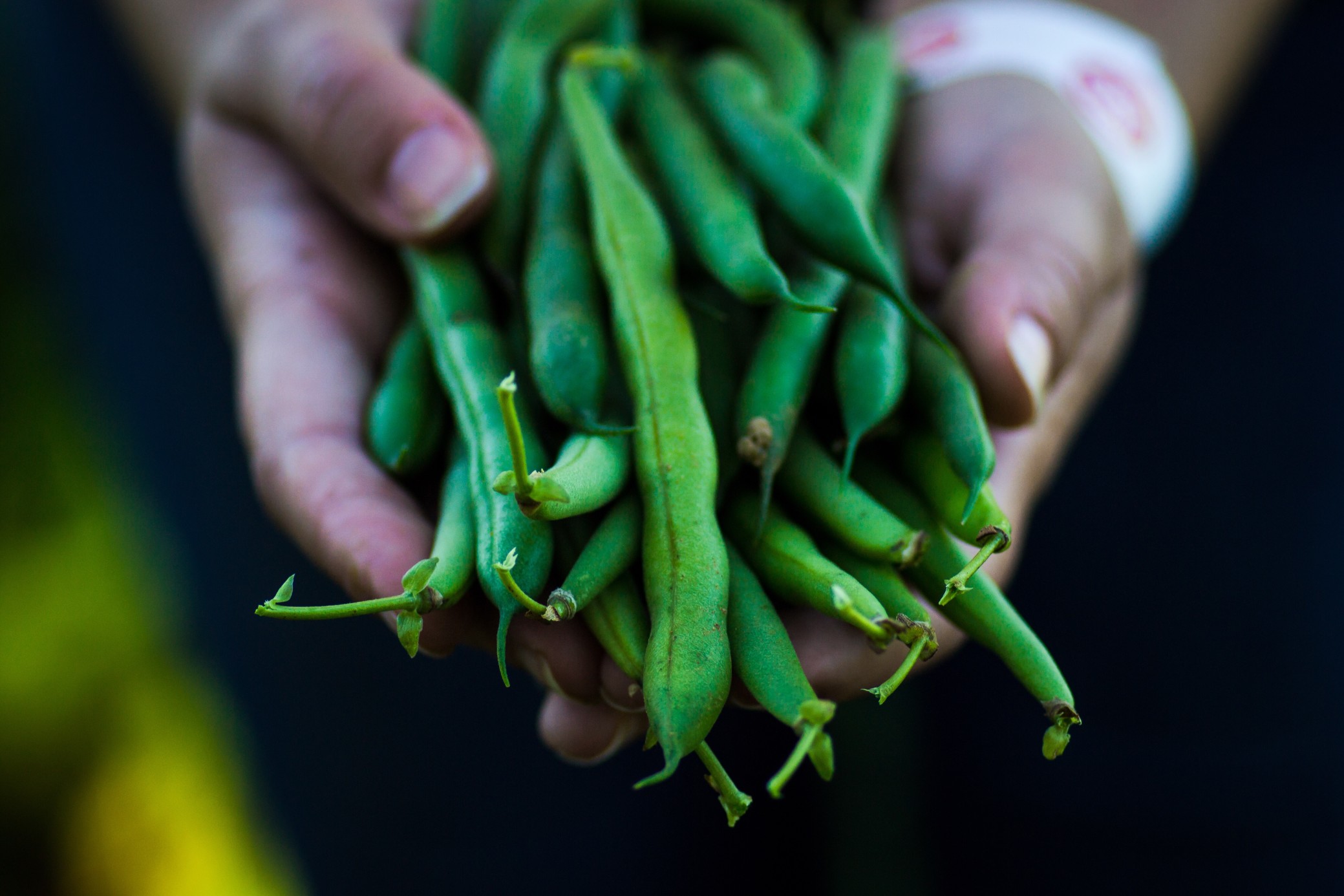INSTITUTIONAL FOOD SERVICE PURCHASING COMMITMENTS
Help community-based institutions contract to purchase healthy food from local farmers and farm businesses
LEVERAGE COMMUNITY-LEVEL INVESTMENTS TO STRENGTHEN THE REGIONAL FOOD SYSTEM
Institutional Food Service Purchasing Commitments
Build collaborations between local farms/farm business and institutions like hospitals, retirement homes, and schools to increase market opportunities for local farmers and the amount of healthy food eaten at institutions. Programs should prioritize BIPOC food and farm businesses, the development of shared purchasing standards such as the Good Food Purchasing Pledge, and education and assistance for both institutions and farmers. They also should engage traditional (“one-stop” or broadline) and alternative (food hubs) distribution channels.
- Technical assistance that helps build relationships between farmers, businesses, and institutional buyers
- Marketing, insurance, and food safety certifications
- On-farm infrastructure so BIPOC and other small farmers are prepared to meet the institutions’ requirements
- Program assessments and evaluation
This promising strategy requires investment in:
- Technical assistance that helps build relationships between farmers, businesses, and institutional buyers
- Marketing, insurance, and food safety certifications
- On-farm infrastructure (coolers, packing sheds, etc.) so BIPOC and other small farmers are prepared to meet the institutions’ requirements
- Program assessments and evaluation
Evaluation of Promising Strategy in Initial Target Regions
Learn more about the Investment Map’s selection of Initial Target Regions.
Hospitals (Atrium-Cone Health, Novant Health, & Atrium Health Wake Forest Baptist Systems), schools, universities (UNC-Greensboro, Wake Forest University, Salem College), and other institutions throughout the state share a commitment to local and sustainable food purchases, policies, and programs. Many local organizations support specific populations and food producers through local and sustainable food purchasing. Institutions like hospitals and schools are already purchasing from Food Hubs and other alternative distribution businesses (Farmer Food Share). Food management companies and traditional one-stop food distributor companies are interested in local and sustainable food purchasing.
Farmers and other food producers, particularly BIPOC-owned producers, need new and extended markets so they can sell more products and expand their businesses. More information is needed about selling to institutions like hospitals and schools. Specific needs include strategies for marketing products, requirements for packaging and labeling, and requirements for food safety and insurance. Institutions also need guidance on accessing local food and farm businesses. Lack of coordinated purchasing standards means institutions can’t easily focus their dollars where there is local opportunity.
Assets: Farmer Food Share
Description:
Investment Approach:
- Increased institutional procurement of local/regional foods. Metric = % of institutional spend ($) on local/regional food products.
- Increased markets and viability of small and mid-size local farms. Metric = % increase in sales for farm, and % increase in overall profit for farm.
- Increased markets and viability of BIPOC, women, or veteran-owned food and farm businesses. Metric = % increase in sales for business, and % increase in overall profit for business.
- Market access for small and mid-size local farms and food businesses. Metric = number of institutions (hospitals) using alternative purchasing pathways to increase spending with small and mid-sized farms and food businesses.
- Market access for BIPOC owned food and farm businesses. Metric = number of businesses owned by BIPOC and relative percentage to all engaged businesses.
- Institutional commitments to purchasing local and sustainably grow/produce from BIPOC owned. Metric = # of institutions that make a commitment.
Hospitals (Atrium Health, Duke Lifepoint, HCA/Mission Health Systems), schools and universities (UNC-Asheville, Western Carolina University), and other institutions throughout the state have local and sustainable food purchasing goals, policies, and programs. Many regional organizations support specific sectors in their local and sustainable food purchasing. Food Hubs and other alternative distribution businesses serving institutional markets. Food management companies and traditional (“one-stop” or broadline) distributors are interested in local and sustainable food purchasing.
Farmers and other food producers, particularly BIPOC-owned producers, need new and expanded markets so they can sell more products and expand their businesses; more information is needed about selling to institutions like hospitals and schools. Specific needs include strategies for marketing products, requirements for packaging and labeling, and requirements for food safety and insurance, but institutions also need guidance on accessing local food and farm businesses. Lack of coordinated purchasing standards means that institutions can’t easily focus their dollars where there is local opportunity.
- Increased institutional procurement of local/regional foods. Metric = % of institutional spend ($) on local/regional food products.
- Increased markets and viability of small and mid-size local farms. Metric = % increase in sales for farm, and % increase in overall profit for farm.
- Increased markets and viability of BIPOC, women or veteran-owned food and farm businesses. Metric = % increase in sales for business, and % increase in overall profit for business.
- Market access for small and mid-size local farms and food businesses. Metric = number of institutions (hospitals) using alternative purchasing pathways to increase spending with small and mid-sized farms and food businesses.
- Market access for BIPOC owned food and farm businesses. Metric = number of businesses owned by BIPOC and relative percentage to all engaged businesses.
- Institutional commitments to purchasing local and sustainably grown/produced and from BIPOC owned. Metric = # of institutions that make a commitment.
FOOD PROMISING STRATEGIES
View other promising strategies for investing in NC’s food systems
